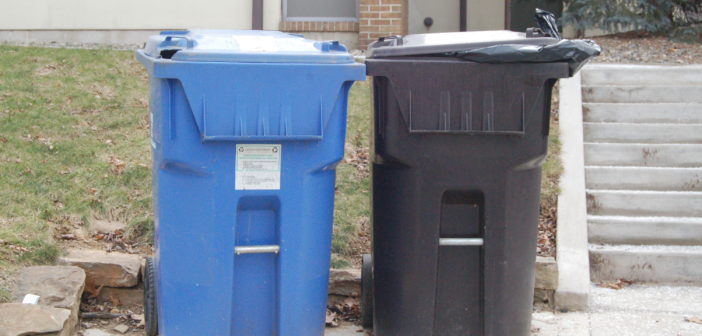In May 2016, Lehigh adopted its Sustainability 2020 plan, continuing the university’s work from its original plan adopted in 2012. Only one year after its launch, Lehigh is starting to see results towards a greener future.
A statement released by the university said the goal of Sustainability 2020 is to combine environmentally-friendly solutions with equitable community practices in order to promote long-term sustainable change. The goals of the initiative are divided into four main focus areas: academics and educational experience, campus and community engagement, operations, and planning/administration.
One of the local goals of the campus and community engagement focus area is known as the Real Food Challenge.
“This challenge intends to shift the existing food budgets away from industrial farms and processed food and towards local, fair trade, ecologically-sound food sources,” Delicia Nahman said in an email.
Nahman, a Lehigh sustainability officer, has monitored the progress of Sustainability 2020 since its inception. She’s witnessed the progress the Real Food Challenge has made. Nahman said locally fair-traded food accounted for 2 percent of Lehigh’s food in 2012. In 2016, that number jumped to 17 percent.
Similarly, Lehigh’s operations are a fundamental part of the daily lives of the university’s students and faculty. According to Lehigh’s sustainability website, the university has reduced emissions by 25 percent, implemented a waste management plan, increased recyclables by 10 percent and proposed building renovations to improve sustainability.
The university also places emphasis on planning and administration for its 2020 goals. There is a continued interest in engaging the university’s internal and external stakeholders, as well as improving Lehigh’s diversity and affordability. Additional efforts to improve the well-being of the community are also included in the plan.
The Campus Sustainability Plan 2020 has already seen success in minimizing Lehigh’s carbon footprint. Andrew Goldman, ’19, the activism chairperson of Lehigh’s sustainability club Green Action, said through different measures such as recycling, composting, reusable containers and waste aversion at the source, the plan has been able to substantially minimize the amount of waste that Lehigh generates.
“Lehigh’s goals since the original campus sustainability plan have become slightly more ambitious, in accordance with the increasing severity of climate change,” Goldman said. “One example is that in the original plan, Lehigh had a goal to reduce emissions and energy use by 3 percent by 2015, which jumped to 25 percent by 2020 in the new plan.”
Nahman said that while the 2020 plan focuses on operational goals, similar to the 2012 plan, it goes beyond that.
“We’ve expanded the depth of focus to policies, processes and programs that will enhance the cultural fabric of the campus and the educational experience,” Nahman said.
Another example of the 2020 plan is the reduction of energy usage from increased efficiency by creating building like STEPS, which was awarded a LEED Gold certification. Other initiatives, such as encouraging research projects focused on sustainability or moving closer to a zero-waste campus, have also increased.
This type of action brings awareness to the reality of climate change and raises to the surface a need for students and faculty to be more proactive.
Since the plan has been contracted, Lehigh students have been encouraged to be increasingly sustainable individuals and aware of climate change.
“I am proud to say that I am a Lehigh student now that Lehigh has the intention of complying with this new plan,” Deniz Soybas, ’19, said. “Now that we are really making a conscious effort to eliminate this nasty issue, I feel motivated to help the university become a more sustainable campus.”






Comment policy
Comments posted to The Brown and White website are reviewed by a moderator before being approved. Incendiary speech or harassing language, including comments targeted at individuals, may be deemed unacceptable and not published. Spam and other soliciting will also be declined.
The Brown and White also reserves the right to not publish entirely anonymous comments.
1 Comment
I anticipate more “climate scientists” will manipulate and outright forge data, all while padding their accounts by selling an armageddon story to the naive public.
The 3 Powerful Reasons All Intelligent People Know Climate Change Is Fake Science
http://rightsmarts.com/3-powerful-reasons-intelligent-people-know-climate-change-fake-science/